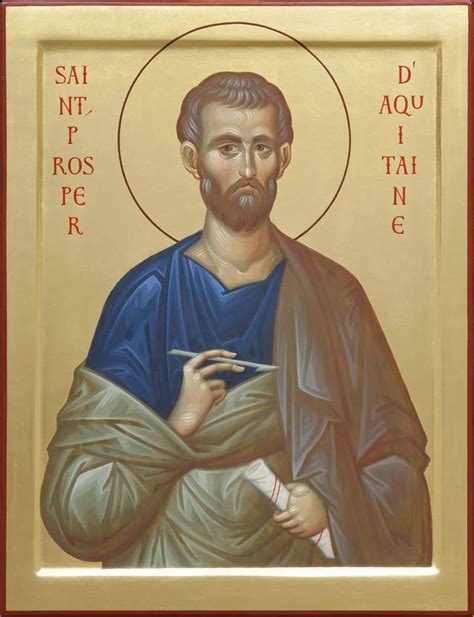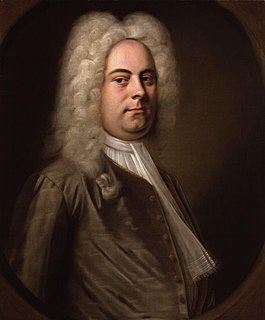A Quote by Prosper of Aquitaine
And just as there are no crimes so detestable that they can prevent the gift of grace, so too there can be no works so eminent that they are owed in condign [deserved] judgment that which is given freely. Would it not be a debasement of redemption in Christ’s blood, and would not God’s mercy be made secondary to human works, if justification, which is through grace, were owed in view of preceding merits, so that it were not the gift of a Donor, but the wages of a laborer?
Related Quotes
It has been said that God's gift is also indescribable because of the grace by which it is given. God, who is rich in mercy, gave the world the gift of His dear Son while we were at enmity with Him. Paul says: 'But God commendeth His love toward us, in that, while we were yet sinners, Christ died for us' (Rom. 5:8). Therefore, in Him we are freely given all things: redemption, forgiveness of sins, righteousness, peace, hope, wisdom and knowledge.
Grace stands in direct opposition to any supposed worthiness on our part. To say it another way: Grace and works are mutually exclusive. As Paul said in Romans 11:6, "And if by grace, then it is no longer by works; if it were, grace would no longer be grace." Our relationship with God is based on either works or grace. There is never a works-plus-grace relationship with Him.
Grace is not against good works! It simply does not bless on the basis of good works. We receive blessing from God based solely on the merits of His Son--blessings freely given to us in Christ and nowhere else. The completeness that is in Christ mean deliverance from trying to 'be good' and 'do right' in order to be accepted by God.
The apostles were very sure that everything of theirs which had to do with salvation was a gift to them from God. 'Increase our faith'. They did not presume that the fullness of faith would come to them merely because they freely opted for it. They believed, rather, that it was a gift of God which would have to be granted to them.
Grace has to be the loveliest word in the English language. It embodies almost every attractive quality we hope to find in others. Grace is a gift of the humble to the humiliated. Grace acknowledges the ugliness of sin by choosing to see beyond it. Grace accepts a person as someone worthy of kindness despite whatever grime or hard-shell casing keeps him or her separated from the rest of the world. Grace is a gift of tender mercy when it makes the least sense.
It is grace at the beginning, and grace at the end. So that when you and I come to lie upon our death beds, the one thing that should comfort and help and strengthen us there is the thing that helped us in the beginning. Not what we have been, not what we have done, but the Grace of God in Jesus Christ our Lord. The Christian life starts with grace, it must continue with grace, it ends with grace. Grace wondrous grace. By the grace of God I am what I am. Yet not I, but the Grace of God which was with me.
This is our Lord’s will, that our prayer and our trust be both alike large. For if we trust not as much as we pray, we do not full worship to our Lord in our prayer, and also we tarry and pain our self. The cause is, as I believe, that we know not truly that our Lord is Ground on whom our prayer springeth; and also that we know not that it is given us by the grace of His love. For if we knew this, it would make us to trust to have, of our Lord’s gift, all that we desire. For I am sure that no man asketh mercy and grace with true meaning, but if mercy and grace be first given to him.











































